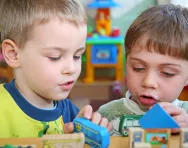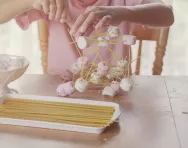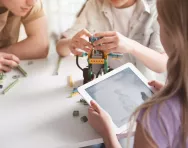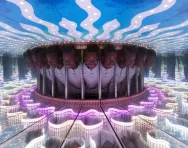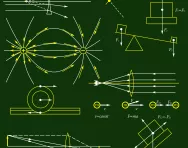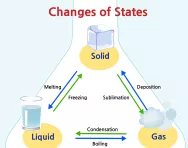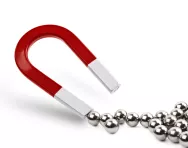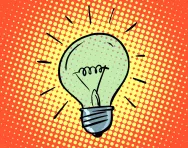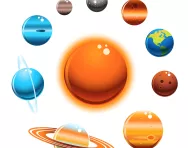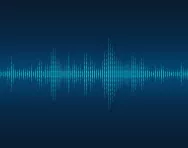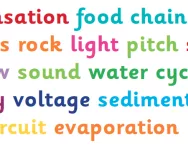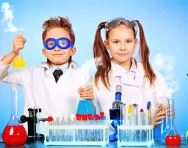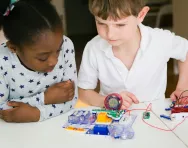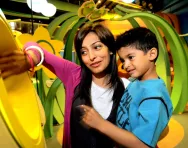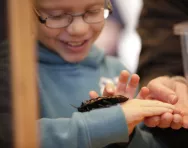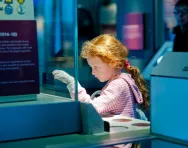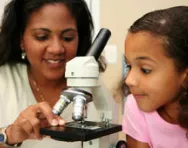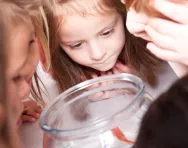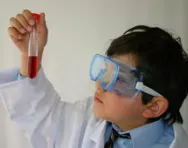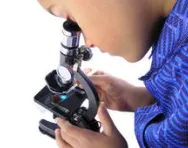What your child learns in Nursery science
Children have naturally enquiring minds, and the science-based activities they do in the Early Years will help develop that sense of curiosity.
Summer science projects for Y6 to Y7 transition
Help your child prepare for secondary-school-level work by supporting them with a summer science project. Caitlin Brown, Education Manager at the British Science Association, explains why devising, completing and presenting their own science investigation is one of the best ways for your child to prepare for Year 7 this summer – and great fun, too!
Best science apps for kids
Help your child discover science through play with these brilliant games-based apps and introduce physics, chemistry and biology the digital way.
Best children’s apps about space
If your child is mad about all things intergalactic, they'll love exploring these space-themed apps.
Museums reviewed by parents: Science Museum London
Contemplate the awe-inspiring complexity of life and human scientific achievement at London's Science Museum, one of the world's leading attractions. There's something for the whole family to enjoy, from toddlers to teens, and the addition of the new Wonderlab permanent gallery for kids makes it a must-visit destination. On your marks, get set... wonder!
What is a force?
Without forces our world would be silent and immobile. We explain what children learn about forces in Year 3 and Year 5 in the primary-school classroom, and how you can support their learning with hands-on activities and experiments at home.
What are states of matter?
Matter makes up our physical universe. In primary school children learn about the matter on Earth, which exists in one of three main states: solid, liquid or gas. We explain what your child is taught about states of matter in KS2 science.
What are magnets?
Magnets, poles, magnetic fields and magnetism... Find out about the terminology your primary-school child will be using in the classroom and try some hands-on activities to support learning about magnets at home.
What is electricity?
Circuit, cell, bulb, switch... Find out about the electrical terminology your primary-school child will be using in the classroom and try some hands-on activities to support learning about electricity at home.
Learning about space in primary school
Find out what children learn about space and our solar system at primary school with our guide for parents, and get some ideas about how to support your child's astronomical learning at home.
What is sound?
Understand what your child learns about sound and pitch in primary-school science and support their learning at home with hands-on activities and investigations.
Primary science glossary for parents
From condensation to the water cycle, TheSchoolRun's primary-school science glossary offers a complete guide to all the concepts children are taught in EYFS, KS1 and KS2 science. Brush up on your own science knowledge, clear up homework confusion and understand exactly what your child is learning at school by reading our basic definitions (with links to more detailed explanations, teachers' tips and examples).
What is light?
Light, reflection and shadows are all part of primary-school science. Find out how children learn about light and how you can support your child's science learning at home in primary-school teacher Catherine Casey's guide for parents.
Best chemistry sets for children
Introduce your child to the world of chemical reactions, crystallisation and chromatography with the right chemistry set for every age and stage. From pre-schooler test tubes and safety goggles to pipettes of luminol and alcohol burners, we've picked great kids' chemistry sets for every budget and every budding chemist.
Best electronics sets for children
Learning how circuits work is an important part of Key Stage 2 science. Make the learning light up, buzz, ring and whizz up into the air with these brilliant electronics sets for children, designed to make exploring electricity creative and captivating. From sturdy sets suitable for small fingers to circuit-diagram projects, these sets offer a fantastic hands-on electrical education.
Museums reviewed by parents: Eureka!
One of the best children's museums in the world, Eureka! is packed with hundreds of hands-on exhibits designed to inspire children to learn through play. Our family testers were amazed at what's on offer and determined to be regular visitors in the future.
Museums reviewed by parents: Manchester Museum
Travel back in time to Ancient Egypt, see reptiles and amphibians from Costa Rica, walk beneath a giant whale skeleton, come face-to-face with a tiger and meet a life-size Tyrannosaurus rex... just a few of the highlights of a visit to Manchester Museum. Our family testers report back.
Museums reviewed by parents: Museum of Liverpool
Dress up as a dock master, play in a pint-sized port, explore first- and third-class travel in Victorian times and fall in love with the sounds of the 1960s... it's all waiting for you (and it's free!) at the Museum of Liverpool. Our parent review highlights the child-friendly activities on offer.
Simple science activities to try today
Science doesn't have to mean complicated experiments with chemicals and Bunsen burners. Children in the Early Years Foundation Stage can get involved in science with these fun, fast-results experiments. Sarah Cruickshank reports.
Primary science: what you need to know
Not sure what your child is learning in science? Swot up with our two-minute parents' guide to primary-school science.
Simple experiments for KS2 scientists
Have you got a budding Galileo or Newton in the family? Help your child's developing scientific enquiries by finding out what they will be learning in science lessons and how to support their practice at home.
Supporting KS3 science at home
As KS3 science becomes more in-depth, your child will benefit from your support. Here’s what they’ll learn and how you can help.
Reception science: what your child learns
Unsure what the science curriculum covers in Reception? Read on to find out.
